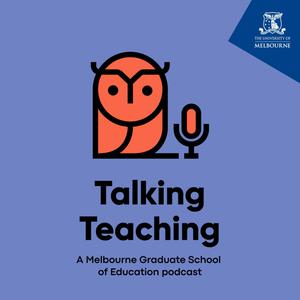
Talking Teaching
University of Melbourne
Tune in to Talking Teaching and join the lively discussion about effective and evidence-based classroom practice, as well as the latest in educational thinking. In each episode, leading educators and thinkers from around the world, including our own from the Melbourne Graduate School of Education, share their thoughts and unique perspectives.
- 31 minutes 59 secondsA New Approach to Measuring Student Success with Melbourne Metrics
Guests:
Professor Sandra Milligan is the Executive Director of Melbourne Metrics and expert in Assessment Research
Jonathan Walter is the Principal of Carey Baptist Grammar School
Description:
In our final 2024 episode, Talking Teaching explores how Melbourne Metrics is transforming student assessment by going beyond academics. We speak with Professor Sandra Milligan from the University of Melbourne, leading Melbourne Metrics, and Principal Jonathan Walter of Carey Baptist Grammar School, an early adopter. They discuss the limitations of traditional metrics like ATAR and the development of alternative tools like the 'ATAR Plus' model. This approach balances academic rigor with personal growth, offering a more holistic view of student achievement. Hear how this new model is positively impacting students, parents, and schools, shaping the future of assessment.
Links:
Australian Learner Competency Credential
Breaking the ATAR mould: A vision for change – The Educator 2024
A future without exams? It's closer than you think – ABC Brightside 2024
Could Victoria replace the ATAR? – ABC Radio 2024
School-university partnership aims to boost students’ key life competencies – The Educator 2024
Future proofing Australian students with ‘new credentials’ – Pursuit 2020
15 December 2024, 7:00 pm - 34 minutes 47 secondsFostering Motivation and Wellbeing in Education
Guests:
Dr Lara Mossman is a Wellbeing science expert and Senior Lecturer at the Centre for Wellbeing Science
Dr Rachel Colla is a Teaching and Learning Innovation Lead and Senior Lecturer at the Centre for Wellbeing Science
Description:
In this episode, we speak with Dr. Rachel Colla and Dr. Lara Mossman from the University of Melbourne’s Faculty of Education about teaching for wellbeing. They discuss the difference between teaching wellbeing skills and creating a classroom environment that fosters motivation and wellbeing. They share their "Wellbeing Integrated Learning Design" framework, offering practical tips on incorporating choice, fostering connection, and using theories like flow and achievement goals.
Links:
Self-Determination Theory in Education
Coursera - Dr. Barbara L. Fredrickson's class on Positive Psychology
Centre for Wellbeing Science at FoE
Colla, Rachel HH, and Lara H. Mossman. ‘Wellbeing Integrated Learning Design Framework: A Multi-Layered Approach to Facilitating Wellbeing Education through Learning Design and Educational Practice’. FRONTIERS IN EDUCATION, vol. 8, 2023, https://doi.org/10.3389/feduc.2023.1216658.
Colla, RH, and CF Kurtz. ‘Storying Research: Exploring the Benefits of Participatory Narrative Inquiry as a Methodology for Wellbeing Research’. International Journal of Applied Positive Psychology, 2024, https://doi.org/10.1007/s41042-024-00147-4.
Oades, LG, and L. Mossman. ‘The Science of Wellbeing and Positive Psychology’. Wellbeing, Recovery and Mental Health, 2017, https://doi.org/10.1017/9781316339275.003.
28 October 2024, 7:00 pm - 26 minutes 9 secondsRethinking Technology’s Role in Students’ Mental Health
Guests:
Professor Nikki Rickard is a professor of Wellbeing Science in the Faculty of Education, University of Melbourne, with a focus on digital mental health and emotional regulation.
Dr David Bakkar is a clinical psychologist, researcher and the Founding Director of MoodMission.
Description:
In this episode, Professor Nikki Rickard and Dr David Backer explore the effects of digital technologies on student mental health. They discuss the risks and benefits of apps, gaming, and social media, emphasising the need for balance. With a focus on digital hygiene education and teacher training, they call for a collaborative approach, including young people, in shaping healthier digital environments for students.
Helpful Links for Teachers and Parents:
- Mood Mission - an evidence-based app designed to empower you to overcome feelings of depression and anxiety by discovering new and better ways of coping
- MoodPrism - a mood tracking app with advanced data collection abilities
- Beacon (created for parents, easy to use, lots of info in a digestible format, recommends safe apps kids and family, developed by Telethon Kids Institute and Dolly’s Dream)
- MIND (M-Health Index and Navigation Database) – searchable data base with practitioner reviews
- Mindtools.io – smaller database, includes ratings and reviews
- Reachout/tools-and-apps
Research:
- Bakker, D., Kazantzis, N., Rickwood, D., & Rickard, N. (2018). A randomized controlled trial of three smartphone apps for enhancing public mental health. Behaviour Research and Therapy, 109, 76-83. https://doi.org/10.1016/j.brat.2018.08.003
- Bakker, D., Kazantzis, N., Rickwood, D., & Rickard, N. (2018). Development and Pilot Evaluation of Smartphone-Delivered Cognitive Behavior Therapy Strategies for Mood- and Anxiety-Related Problems: MoodMission. Cognitive and Behavioral Practice. https://doi.org/10.1016/j.cbpra.2018.07.002
- Bakker, D., & Rickard, N. (2017). Engagement in mobile phone app for self-monitoring of emotional wellbeing predicts changes in mental health: MoodPrism. Journal of Affective Disorders.
- Bakker, D., & Rickard, N. (2019). Engagement with a cognitive behavioural therapy mobile phone app predicts changes in mental health and wellbeing: MoodMission. Australian Psychologist, 54, 245-260. https://doi.org/10.1111/ap.12383
22 September 2024, 8:00 pm - 29 minutes 34 secondsThe Importance of Play in Early Childhood Learning
Guests:
Dr Sarah Young is a Senior Lecturer and Research Fellow at the Research in Effective Education in Early Childhood (REEaCh) Centre in the Faculty of Education, University of Melbourne.
Nicole Pilsworth is the Executive Manager, Early Learning at Gowrie Victoria and the Chair of the Victorian committee of Early Childhood Australia.
Description:
This episode explores the power of play in early childhood education. Learn how play supports brain development, enriches learning, and connects generations through new innovative projects. Learn practical strategies to enhance play in the educational setting without disrupting children's motivation, as well as how to navigate the challenges of new policy reforms and the rollout of universal funded three and four-year-old kindergarten in Victoria.
Links:
- Teacher participation in young children’s dramatic play - S Young, S Edwards, J Nuttall
- Examining early childhood teachers' attitudes and responses to superhero play - Megan Wiwatowski, Jane Page, Sarah Young
- The EDGE Study
- Gowrie Victoria
- A Continuum of Play-Based Learning: The Role of the Teacher in Play-Based Pedagogy and the Fear of Hijacking Play – Angela Pyle and Erika Danniels
1 September 2024, 8:00 pm - 32 minutes 22 secondsEducating in the Digital Age: From theory to classroom
The use of digital education and artificial intelligence is rapidly becoming the new norm. In this episode, we are joined by Carlo Perrotta, an Associate Professor of Digital Education, and Dr. Matthew Fyfield, Deputy Principal of Mazenod College, who explore the intricate world of educational technology and its impact on teaching and learning. Together, they tackle ethical concerns, pedagogical responsibility, and the need for clarity in understanding digital tools, while envisioning what this all means for teachers.
15 July 2024, 8:00 pm - 28 minutes 58 secondsStrategies for Impactful Educational Leadership: A Conversation with Jim Watterston and Yong Zhao
In this special episode, we sit down with distinguished guests Professor Jim Watterston, Dean of the Faculty of Education, and Professor Yong Zhao, Foundation Distinguished Professor at the University of Kansas. Together, they discuss their recent co-authored book, 'Focused: Understanding, Negotiating, and Maximizing Your Influence as a School Leader,' offering a practical guide to educational leadership. From navigating challenges to enhancing student engagement, Watterston and Zhao provide strategic advice grounded in research and experience.
3 June 2024, 8:00 pm - 28 minutes 40 secondsThe Universities Accord and strengthening the link between schools and higher education
The release of the Universities Accord earlier this year marks a pivotal moment in higher education policy. Its recommendations address crucial aspects of the evolving higher ed landscape, including equity, funding, HECS/HELP, and living costs. These changes could profoundly influence the decisions of first-year students transitioning from school to higher ed, emphasising the pivotal role schools play in shaping their future trajectories.
In this episode, Associate Professor Gwilym Croucher, an expert in Higher Education Policy, joins Principal Annette Rome of St. Margaret's Berwick in a dynamic dialogue. Together, they explore the potential impacts of the Accord, strategies for preparing school students for making decisions around their future, and how we ensure good outcomes for everyone.
7 May 2024, 8:00 pm - 27 minutes 32 secondsSupporting Neurodiversity in Our Schools: A Teacher's Guide
Australian schools are recognising the growing importance of fostering inclusive spaces for neurodiverse students. Teachers play a vital role in creating belonging for these students. But how can we support teachers, to support neurodivergent students in the classroom?
We speak to experts Jess Rowlings and Dr Matt Harrison, co-directors of Next Level Collaboration and passionate researchers in neurodiversity, about how teachers can support the learning of their neurodivergent students. We explore what neurodiversity is, how it presents in young people and practical strategies teachers can use in their classrooms.
8 April 2024, 8:00 pm - 33 minutes 27 secondsLiterary Education and the role of reading for social change
In a world abundant with content, how can we harness literary education as a form of social change? How can we re-invigorate schools to be spaces to engage with uncomfortable truths and delicate subject matter in a respectful way?
In this episode, Faculty of Education Deputy Dean and co-founder of the Literary Education Lab, Professor Larissa Mclean Davies, and English teacher and PhD candidate, Allayne Horton, help us uncover the vibrant world of literary education and explore how schools and teachers can effectively engage with texts to mould future perspectives.
13 February 2024, 7:00 pm - 32 minutes 20 secondsBuilding Hope: Equity, Funding and the National School Reform Agreement
In this episode, we are joined by two experts, to discuss the Nation School Reform Agreement, currently up for renegotiation. This joint agreement between the Commonwealth, states and territories is designed to lift student outcomes in Australian schools and plays a pivotal role in school funding and addressing equity in education. Prof. Pasi Sahlberg and A/Prof. Glenn Savage, both influential in Australian educational policy, help us explore the future of the Agreement, its implications for teachers, and what we can hope for when deliberation concludes in December 2024.
12 December 2023, 10:43 pm - 41 minutes 20 secondsEmpowering the Next Generation: Climate Education in Schools
In this episode, we learn how to bolster both climate and sustainability literacy, and support climate action in the classroom. Listeners will discover how we can empower students to not only understand the science but also engage in meaningful conversations about our changing planet. We explore how teachers can create safe spaces for students to process their feelings about climate change and how schools are implementing sustainable practices, fostering a sense of agency and hope.
We speak with three academics from the Faculty of Education: Professor Marcia McKenzie, the Associate Dean (Sustainability) and Director of the MECCE Project, as well as Associate Professor Kate Coleman and Dr. Sarah Healy, the co-directors of the Speculative Wanderings in Space and Place (SWISP) Lab. Additionally, Jenny Williams, Principal of Firbank Grammar, shares insights from a school perspective.
15 November 2023, 10:47 pm - More Episodes? Get the App
Your feedback is valuable to us. Should you encounter any bugs, glitches, lack of functionality or other problems, please email us on [email protected] or join Moon.FM Telegram Group where you can talk directly to the dev team who are happy to answer any queries.
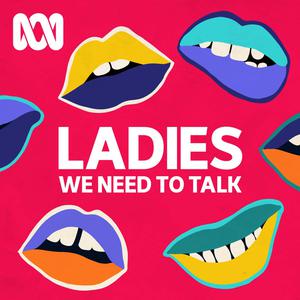 Ladies, We Need To Talk
Ladies, We Need To Talk
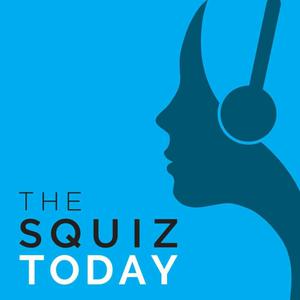 Squiz Today
Squiz Today
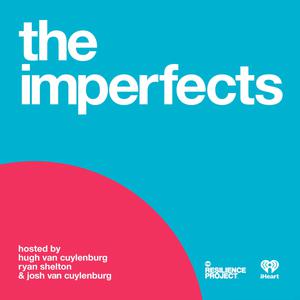 The Imperfects
The Imperfects
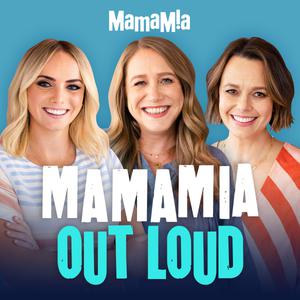 Mamamia Out Loud
Mamamia Out Loud
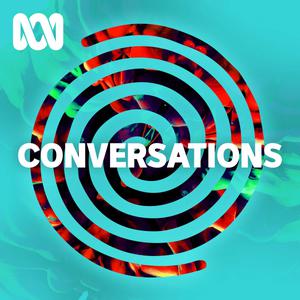 Conversations
Conversations
 No Filter
No Filter